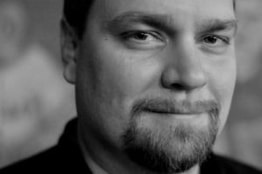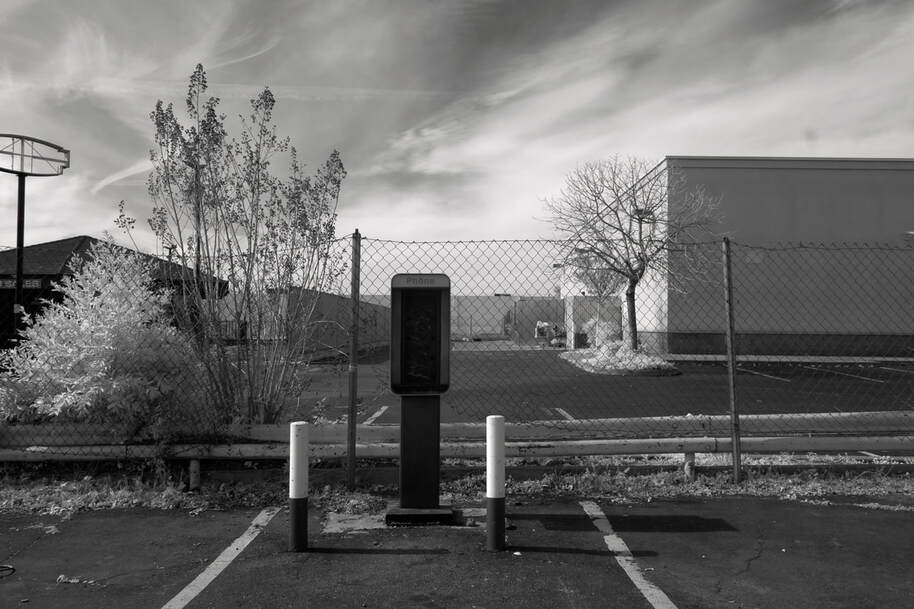|
Robert Couse-Baker CC Descended from the Gods The studio offered me the role of Pharaoh. I was a pasty Polish Catholic, but they said I had the right brow, arching and menacing in a way they conceived Egyptian. I told them I’d shave my head and they said that was great. I said I could shed the extra five pounds. They said that was great—they’d assign me a trainer. I'd get really tan, just live outside. They said that was great, but they'd paint me the perfect hue. I told them I could research an Egyptian accent, and they corrected: “British.” I signed the papers. It’d be my biggest role yet. I lived in the gym the two months before the shoot. They hired a former NFL guy, a real dick. I started five-eleven, 158 pounds, and he called me Lard Ass. Within a week I was in the best shape of my life and he still called me Lard Ass. "One more, Lard Ass. Come on.” At the end of two months I weighed 165 and looked like a statue. I grew an inch. The trainer said I should either do two thousand sit-ups a day during the shoot or not eat. Or both. He said, "Don’t let me down, L.A. This is my rep on the line, not yours." At the location, protestors picketed, most signs declaring WHITE OUT. One had my picture stepping on and crushing a pyramid. One said John 3:16. When I pulled into the lot, they surrounded my car. They banged on my windows. They ripped off the windshield wipers. Security came to clear a path. One protestor called me Hitler—I thought that was harsh, and perhaps unrelated. The director complimented my physique and rubbed my scalp. "Great." Next I’d go to makeup to get painted and have my eyebrows sculpted. Then I’d be shipped out to chariot training, which was exactly what it sounds like. My scenes wouldn’t be shot for a few weeks, in a Tunisian desert. The director rubbed my head again. “For luck.” After the first coat, I didn’t look as much Egyptian as I looked jaundiced. Three more coats did the trick. My appendectomy scar stood out and the makeup woman told me I was supposed to have disclosed that. She said they’d CGI it, or better yet, let her turn it into a spear wound, part of Pharaoh’s backstory. The studio opted for CGI, my first special effect. Chariot training went down outside Ft. Worth. It lasted nine hours a day for eleven straight days. I studied alongside the movie’s lead, an Israelite slave played by a Welsh ginger named Sean, the controversial but bankable headliner. We only needed proficiency—stuntmen would do the heavy lifting—but the more we could do ourselves, the better. I mastered the one-hand steer, freeing up my other hand to rest on my hip and occasionally point. I practiced my intense glare. I rehearsed an evil laugh. I perfected the scene-ending line, for when I lost the race: How?! I am descended from the gods! Nights, Sean and I frequented a local bar. No one, even if I’d been famous famous, could have recognized me. I was cut. I was bald. I appeared to be another race. Sean, however, was dyed significantly lighter and his red curls were a dead tell. Women surrounded him. They bought him drinks. He took one, at least, to the hotel every night. I slept alone, by choice, wanting to stay focused. I did my sit-ups. Each morning, my sheets were stained bronze. I left a twenty on the nightstand before heading out. I returned each evening to pure white. The final night in Texas, we drove toward the city, to a new bar. Sean had upset the locals, bedding one too many married waitresses. We found a place with burgers and billiards. We’d fly to Tunisia in the morning, so we agreed on a short night. Inside, we were the only white people. Or, it seemed, Sean was. He did not hesitate, putting in an order with a pretty waitress and commandeering a table. He racked and chalked his cue. I broke and sunk the 8. “Lucky shit,” Sean said and reracked. Two men put quarters on our table. They racked and we played. Between shots, they saddled next to me, asked me where I was from. I said Chicago, then added, “South Side.” Between shots, Sean flirted with our waitress, who flirted back, lots of hands wandering south. The two guys asked how I knew Sean, why I’d brought him here. I told them he worked for me, that he was my driver. They said he was lucky I was with him. Sean scratched on the 8, tossed his stick aside, and sat in a booth, pulling a different waitress toward his lap. The regulars looked displeased. I told Sean we’d better go, that the waitress should stay. I bought everyone a round then coaxed Sean out the door, perhaps just in time. “Take care, brother,” the bouncer said to me. “Word,” I replied. At five a.m., we boarded our flight, fourteen hours with one layover in New York, another in Cairo. In Cairo, we got texts: The film was canceled. Protests had struck the right nerve, at the right time, so the backers pulled out. They bought us tickets home. We found our new gate and Sean started talking up the woman at the desk. She had olive skin, long eyelashes, and wore a navy blue hijab that matched her airline pantsuit. The woman asked Sean to sit down. He didn’t. Just like that, there were guards, guards with automatic weapons. They were going to arrest Sean, take his passport. He said something I didn’t hear, something that made the guards push him to the ground. One put his boot into Sean’s back. I stepped up, my voice loud, divine. “Release him!” I commanded the soldiers. “This one belongs to me.”  Michael Czyzniejewski's fourth collection of stories, The Amnesiac in the Maze, will appear from Braddock Avenue Books in 2023. He serves as Editor of Moon City Press and Moon City Review. In 2009, he received a fellowship from the National Endowment for the Arts. Comments are closed.
|
AuthorWrite something about yourself. No need to be fancy, just an overview. Archives
April 2024
Categories |

 RSS Feed
RSS Feed
